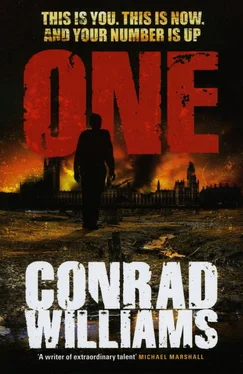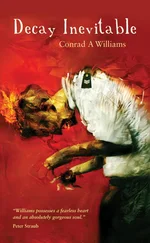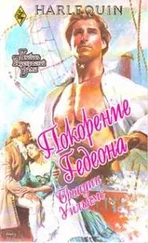It was a large feather; Jane couldn’t begin to guess what it had once belonged to. He had broken into a couple of the houses at the southern edge of the town and found a guidebook to British birds. He’d also liberated a pair of Nikon binoculars and an unopened bottle of Bladnochmalt whisky. He cracked the seal on that and took a brief swallow before putting the binoculars to his eyes and sweeping them slowly over the view.
East, the sea, huge and black and torrid in the lenses, its surface a choppy coating of spume. The beach was choked with tens of thousands of washed-up fish. Here and there something more exotic: white-beaked dolphins, grey seals, a basking shark, a minke whale. Endless fluthers of jellyfish. He peered through the glasses at the land to the south-west, turning through 360 degrees until his attention was back on the water. Nothing but stubbled countryside and the boiling horizon.
He took another belt of whisky and secured the bottle in the rucksack. He shouldered it, making sure that the straps were not twisted, and headed back down the hill.
‘Careful, Stanley,’ he called out. ‘Mind you don’t slip.’
He had climbed a hill with Cherry early on in their relationship. It wasn’t lost on him that much of their time together since had felt like the same thing. They had taken a tent to the Brecon Beacons in South Wales. They’d climbed Pen y Fan, a day’s trek, and then camped in the great valley beneath it, cooking packet foods in water taken from the nearby lake and boiled, smacking their lips, making appreciative groans even though the rehydrated rice had been appalling. The silence as night fell had freaked them out. That and the depth to the sky, the assault of stars. Their chattiness was cut by the spectacle. They lay on their backs in the grass, awed as stars materialised in the dark spaces between the brighter bodies. There was no limit. There was a point when they both swore there was more light than night in the sky.
They watched the scratches of light as meteors erased themselves on the skin of the Earth. They pointed out the uniform trajectories of satellites. Venus crept across their line of sight. Even though they were exhausted by their long walk, sleep had no chance of settling in them.
‘It’s amazing,’ Jane had said.
Cherry’s voice, when she replied, quavered, brimming with tears. ‘I feel… small, and thrilled, and sad,’ she said. ‘I can’t explain. I haven’t the words.’ He clasped her hand.
‘We’re on the edge of a galaxy that’s expanding,’ he said. ‘We’re the shrapnel from a bomb blast.’
‘If we’re on the edge, does that mean we’re one of the oldest parts?’
‘That would make sense, wouldn’t it?’
‘So the centre of the Milky Way, that’s quite young?’
‘Well, relatively, I suppose.’
‘Should we take a physics degree now?’
They did not make love that night, the first time in three intense weeks since they had started seeing each other regularly. Jane, whose appetite for her was great, did not notice.
‘Those meteors,’ he said, as another chalked itself off, ‘they’re probably the size of golf balls. Maybe smaller.’
‘Richard balls?’
‘I said smaller, not bigger.’
Once you had become accustomed to the dense scatter of stars, and fastened your eyes to one patch, it was striking to realise how many meteors there were.
‘It’s beautiful,’ Cherry said. ‘But I wouldn’t want to be out there.’
‘We are out there,’ Jane replied.
‘You know what I mean.’
‘Yeah. It’s a pretty rough place. You wouldn’t last a second. Nothing to breathe. Sub-zero temperatures. Radiation. Super-accelerated debris would fly straight through you. Pressure.’
‘Perhaps only marriage comes close to rivalling it.’
He laughed nervously at that. ‘If anything larger than a golf ball came down on us… I mean, considerably larger than a golf ball, like the size of Iceland, say, we’d be in big trouble.’
‘I’ve seen the films.’
‘You’ve seen the heroes save the day. What if one really hit? Came down tonight. If you survived the impact you’d be looking forward to a nuclear winter that lasted years. No sunlight. Death of vegetation. Food chain down. Everything dead.’
‘Are you always such a hot date?’
Jane liked that about her, that ability to rescue them from a downturn in mood with a quip. It wasn’t the only thing. Cherry was like no other woman he had met. She didn’t have a ramrod-straight back and skin so glossy and flawless you could have played curling on it. Her hair wasn’t advert soft, thick and tangle-free. She didn’t have a hundred pairs of shoes or spend two hours in the bathroom getting ready for a pub lunch. She didn’t consider a small green undressed side salad to be a substantial meal. He liked the way she moved during lovemaking, flipping him onto his back, climbing him, pressing fully against him, a steepening of herself to match the growth of her own pleasure.
‘What would you do?’ she asked. ‘If this was our last night? If a meteor were to hit, or the Earth split in two, or a star exploded and drenched us in fire?’
‘Burn my pants and take a shower.’
‘But seriously?’
‘If we survived? I’d shoot you. And then I’d shoot myself. There would be no way forward.’
After that night things changed. There was a soberness. It wasn’t as if they didn’t have fun or failed to enjoy themselves, but later in their holiday, canoeing in the Bristol Channel or scrambling in Llantwit Major did not inspire the excitement it ought to have done. There seemed a check on their behaviour, as if screaming or laughing in the wake of what they had witnessed would somehow be disrespectful. The enormity of what lay beyond the Earth’s meagre pull, the knowledge that they had been staring at stars long dead before the Earth had cooled, humbled them both. Jane wondered if that night had damned them in some way. Instead of opening themselves to the beauty of it, they had taken a left turn and talked about the blanket lifelessness in space and time, other than on this speck of blue-green dust.
They returned home and two weeks later Cherry told him she was pregnant.
The wind around him, harsh and frantic, as if trying to get inside him. The sea a black wall. He remembered a magazine he’d started collecting, years before – he must have been thirteen, into fighter jets and blood – about the Argentine invasion of the Falkland Islands, and the British campaign to get them back. It was one of those magazines whose introductory price was remarkably low, but then reverted to a couple of pounds and went on interminably; he never followed the run through to the finish.
The Marines and the Paras covered more than fifty miles of inhospitable land by foot in bad weather in three days, carrying full pack. ‘Marching’ didn’t do it justice; ‘yomping’ was more like it.
Treat this as an act of liberation , Jane told himself. This is not about you. The miles will go easier if you keep your mind on Stanley. You can tell him about yomping when you see him. You can tell him about Goose Green and the Paras, and his namesake port where the final battle took place. He’ll love that.
Stanley had begun to be fascinated by death. But he didn’t see it as a permanent thing. Playing with his Star Wars characters, he would ‘dead’ somebody and after a while they would come back to life. But it was obviously in his thoughts. They went to Brittany for a holiday – their last as a family – exploring the coast of rose-coloured granite, and Stanley had come right out and asked him, ‘What means die? What means dead?’ Stanley and Cherry had decided on a policy early on, not to lie, not to dress things up, and so Jane had told him exactly what it meant. ‘It means you stop breathing, your heart stops beating. Your brain stops thinking. And it’s like that for ever. You never come back from it.’
Читать дальше












